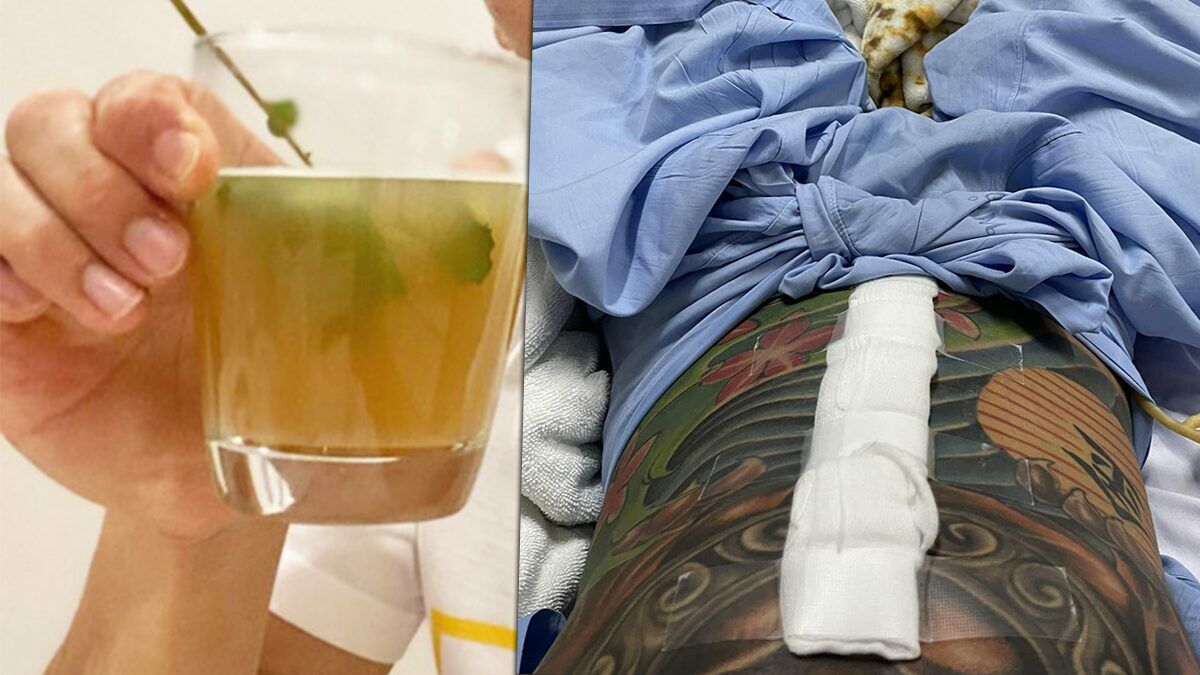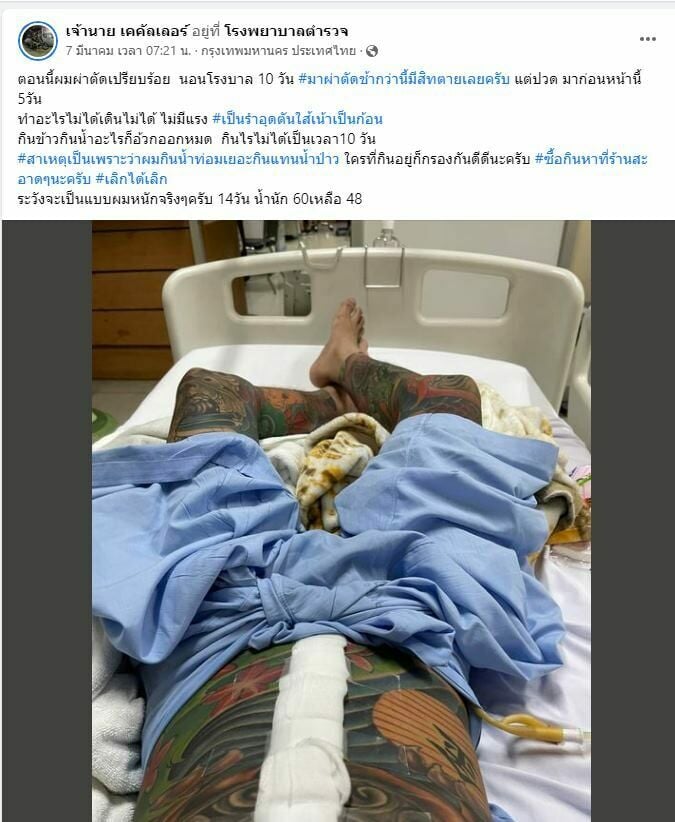Thai man ‘nearly dies’ from replacing water with kratom tea

A Thai man says he “nearly died” after replacing drinking water with kratom tea. Now, he’s warning others against abusing the formally-illegal plant.
Kratom (Mitragyna speciosa) is a tropical evergreen tree native to Southeast Asia. The leaves of the kratom tree are known for their opioid and stimulant-like effects.
Leaves of the kratom tree have been used for centuries in Thailand, in traditional medicine as well as by farmers who chew kratom leaves to sustain their energy levels while working in the fields.
Kratom was previously listed as a Category 5 narcotic under Thai law, but changes made to the Narcotics Act in 2021 reclassified the plant as a “herb” which can be legally grown, sold and consumed. It is typically ingested as a brewed tea, in capsule form, or as a powder that can be mixed into food or drinks.
A tattooed Thai man named Jaonai made headlines in Thai media today after posting about his “near-death experience” with kratom on Facebook.
Jaonai posted a photo of himself lying in a hospital bed, with bandages covering a long surgical scar from the top to the bottom of his stomach. He said…
“I’ve had my operation now. I’ve slept in the hospital for 10 days since. If I’d have waited any later to have surgery, I’d have died.
“The five days prior to the surgery were agony. I was in a lot of pain. I couldn’t do anything. I didn’t have any strength.
“My intestines were blocked and rotten. I couldn’t eat anything for 10 days. The reason is that I drank a lot of kratom tea instead of water.
“Whoever chooses to drink kratom – make sure it is filtered well and you buy it from a clean shop.
“You can quit. Be careful you don’t turn out like me. It’s been a really hard two weeks. I did weigh 60 kilograms, now I only weigh 48.”
Kratom might be legal in Thailand, but like any substance, abusing the herb can be dangerous.
Some people use kratom for its therapeutic effects, others use it recreationally and some to self-medicate for conditions like chronic pain, anxiety, and depression. However, kratom has not been approved for medical use by the US Food and Drug Administration (FDA), and there is limited research on its safety and efficacy.
After kratom was legalised in Thailand, more than 12,000 people convicted of kratom-related offences were granted amnesty.
In March last year, a woman from Buriram dressed up in a bear costume and stood on the side of the road to attract more customers to her kratom stall. Apparently, the sales tactic was successful and her profit shot up to over 1,000 baht per day.

Latest Thailand News
Follow The Thaiger on Google News:


























